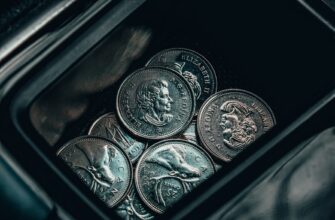Understanding Cryptocurrency Regulations in Egypt
Egypt maintains a cautious stance toward cryptocurrency. The Central Bank of Egypt (CBE) prohibits banks from dealing in digital assets, and Dar al-Ifta issued a religious decree declaring Bitcoin transactions “haram” (forbidden) in 2018. However, individual ownership isn’t illegal. Egyptians can legally buy, hold, and trade cryptocurrencies through international exchanges, though they operate in a regulatory gray area. Always prioritize platforms adhering to KYC/AML protocols to ensure compliance.
Step-by-Step Guide to Buying Cryptocurrency in Egypt
Follow these steps to start your crypto journey securely:
- Choose a Reputable Exchange: Select platforms like Binance or Bybit that accept Egyptian users (detailed below).
- Create & Verify Your Account: Sign up with email/phone, then complete identity verification (passport/national ID).
- Deposit Egyptian Pounds (EGP): Use bank transfers, Vodafone Cash, Fawry, or credit/debit cards. Some exchanges support direct EGP deposits.
- Buy Crypto: Navigate to the “Buy/Sell” section, select cryptocurrency (e.g., Bitcoin, Ethereum), enter EGP amount, and confirm.
- Secure Your Assets: Transfer coins to a private wallet (hardware or non-custodial) immediately after purchase.
Top Cryptocurrency Exchanges for Egyptian Users
These platforms support EGP deposits and Egyptian traders:
- Binance: Largest global exchange. Supports EGP deposits via bank transfer, Visa/Mastercard, and Vodafone Cash. Low fees (0.1% spot trading).
- Bybit: User-friendly with EGP deposits via bank cards and local transfers. Offers staking and derivatives.
- eToro: Ideal for beginners. Accepts Egyptian credit cards and bank transfers. Features copy-trading portfolios.
- LocalBitcoins (P2P): Peer-to-peer marketplace to buy BTC directly from sellers using Fawry or cash deposits.
Note: Avoid unregulated platforms. Always enable 2FA for account security.
Storing Your Cryptocurrency Safely
Never leave coins on exchanges long-term. Use these secure alternatives:
- Hardware Wallets (Cold Storage): Trezor or Ledger devices – offline storage immune to hacks.
- Mobile Wallets: Trust Wallet or Exodus – convenient for smaller amounts with private key control.
- Paper Wallets: Offline-generated keys printed physically – ensure no digital copies exist.
Backup recovery phrases in multiple secure locations. Egypt’s humid climate demands waterproof storage for physical backups.
Frequently Asked Questions (FAQs)
- Is crypto legal in Egypt?
Ownership isn’t banned, but banking institutions cannot facilitate transactions. Trading via international exchanges remains accessible. - What’s the cheapest way to buy crypto in Egypt?
P2P platforms like LocalBitcoins often offer lower fees than credit card purchases. Bank transfers also minimize costs. - Can I use PayPal to buy crypto in Egypt?
No. PayPal doesn’t support crypto purchases in Egypt. Use local payment methods like Fawry or bank cards. - How do I pay taxes on crypto gains?
Egypt lacks specific crypto tax laws. Consult a local tax advisor for capital gains reporting requirements. - Which cryptocurrencies should beginners buy?
Start with established coins: Bitcoin (BTC) and Ethereum (ETH) for lower volatility and higher liquidity.
Final Tip: Invest only what you can afford to lose. Egypt’s crypto landscape involves unique risks – stay informed through resources like the CBE’s official communications.








